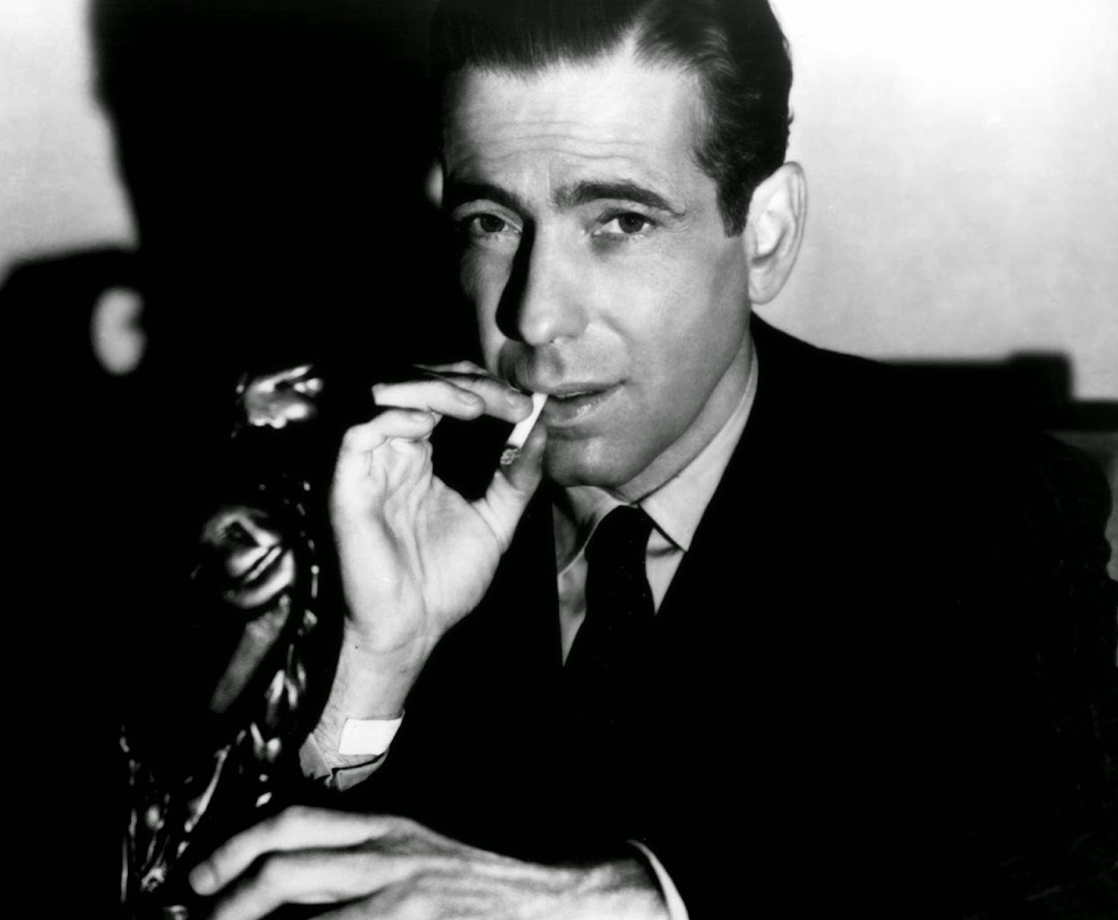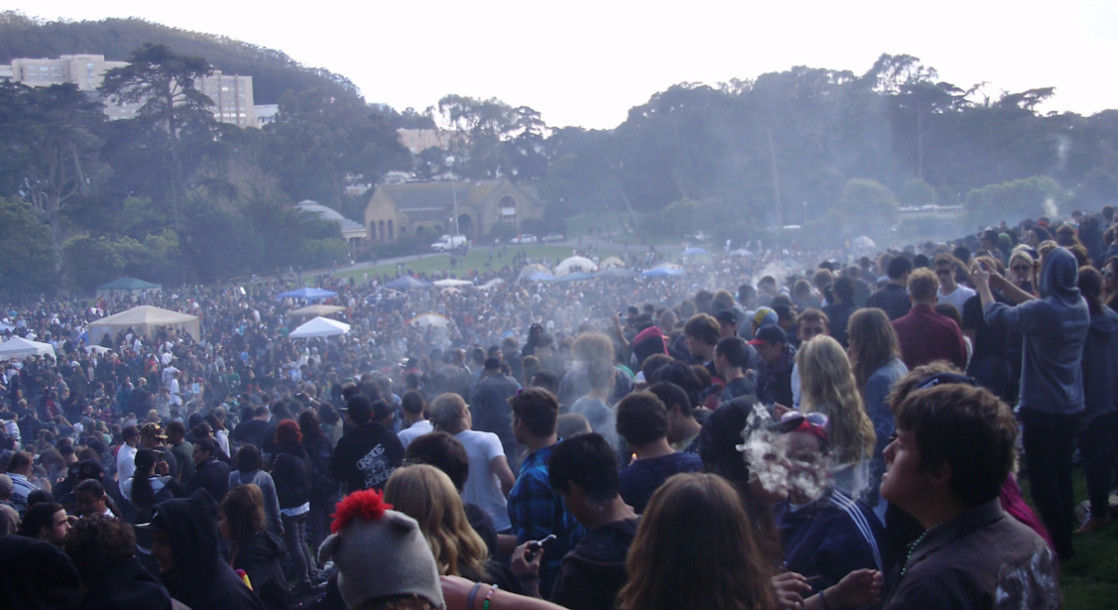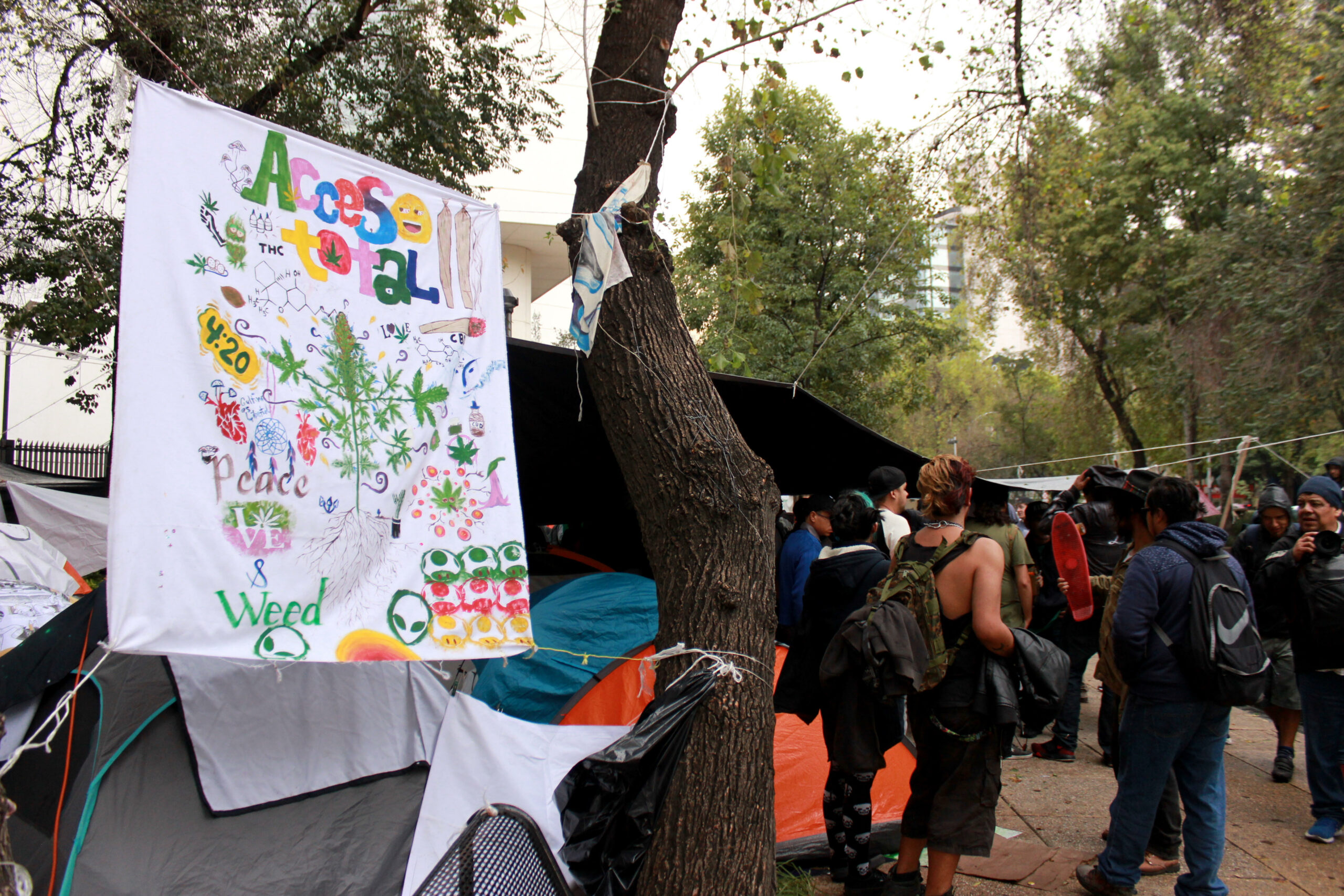In our series, "HiTunes," we investigate various marijuana lore throughout music history, debunking myths and sifting through hazy rumors for the blunt truth. What was the first song to reference weed? Why have multiple artists written songs warning others about smoking with Willie Nelson? Is Redman's song "How to Roll a Blunt" actually an effective instructional guide? We'll explore these urban legends and more.
The Legend: Ever since the late '60s, famed actor Humphrey Bogart's last name has been commonly used as a verb amongst stoners. There's no evidence to suggest that Bogart was ever a toker, so how did the slang develop and why has it persisted throughout pop culture?
Bogart rose to fame in an era before marijuana depiction was commonplace in media — unless it was the subject of fear mongering — making his film debut in 1928, and reaching his peak in the early '40s with starring roles in The Maltese Falcon and Casablanca. His slick swagger lent itself to the smokey noir vibe of the era, and, in addition to his talent, made him a generational icon.
Inseparable from Bogart's image was the omnipresent cigarette dangling rakishly out of the side of his mouth. Check out this clip — he even held his smokes in the side of his mouth when lighting up. Bogart never puckered his lips while pulling, and when he spoke, the cig bobbed around like an expressive extra appendage.
Onscreen, Bogart was unhurried in his consumption of tobacco, and appeared unwilling to let smoking distract him from heroic tasks. He'd regularly carry on full conversations as the ash lengthened on the end of his cig. Considering the price of cigarettes at the time, and the fact that one rarely (if ever) passes a cig around among friends, this wasn't a big deal. But eventually someone acted like Bogart during a joint cypher, and a slang term was born.
Exhibit A: Fraternity of Man's "Don't Bogart Me" (1968)
If you were a stoner in 1968, you probably saw Easy Rider in theaters. And if that was the case, you most certainly heard "Don't Bogart Me."
Performed by Fraternity of Man, which included future members of Little Feat and The Mothers of Invention, the song is more commonly known as "Don't Bogart That Joint," but for obvious reasons it went by a different title on the original soundtrack. Oddly, it didn't appear in the Easy Rider scene when an actual joint is passed around a campfire (a real joint, according to Peter Fonda), but its inclusion in a film that was so central to drug culture in the '60s clearly had enough reach for stoners across the country to start adopting Fraternity of Man's slang.
The song is repetitive, simplistic, and very straightforward about the term's meaning:
Don't Bogart that joint, my friend
Pass it over to me
Roll another one
Just like the other one
You've been hangin' onto
And I would sure like a hit
Basically, "Bogart" is used as a verb synonymous to "hog," "waste," or "use selfishly." Although old Humphrey wasn't depriving anyone else of smokes with his behavior, mimicking his lack of urgency during a sesh would certainly do so.
Easy Rider was certainly the term's primary vehicle into the mainstream, but even if you missed the film, you were likely to encounter it elsewhere. "Don't Bogart Me" went on to become a staple during Little Feat's legendary live performances, and was even included on their most commercially successful album, Waiting For Columbus. Well into the '80s, that album was a fixture in stoner dorm rooms, and with it, Bogart and "Bogarting" survived.
Exhibit B: '90s Rap
The next culturally prominent place that "Bogart" popped up as slang was, for whatever reason, East Coast rap in the '90s. Redman, one of the most weed-centric rappers of all time, was one of the first to pick up on the usage, dropping a "Bogart" in his 1994 track "Don't Mind."
It would be the first of several times Redman invoked the famed actor's name, my personal favorite being the line, "I'm a pimp when I'm flickin' the Bic/Humphrey Bogart style, with a blunt and a Black & Mild" on the more recent track "My 2nd Lighter." Eventually, everyone from Ghostface Killah to Guru from Gang Starr was using the term, making it a staple in hip-hop.
Exhibit C: Modern Usage
As is often the case with slang, the word "Bogart" has become watered down in recent years, and is no longer used solely in discussions of weed. It's become so ingrained in culture that it's actually become a legitimate synonym for "hog," registering with a much wider audience than its initial stoner circles.
Almost all recent usages in popular music are not in direct reference to joints, blunts, or any other smoking implement that burns continuously. Take the Lil Uzi Vert and The Weeknd song above, which was released last year. "I took his girl, that's a Bogart," Uzi raps, not suggesting that he physically holds onto women in a similar fashion to Bogart and his Lucky Strikes, but rather that he hogs or selfishly snatches them.
Similar examples pop up in Kendrick Lamar's verse on A$AP Rocky's "1 Train," Rocky's own "Pretty Flacko," 21 Savage's "Numb," and Eminem's "No Love," all of which have dropped in the last ten years. In every case, "Bogart" is not used in reference to weed. I'm positive that all the aforementioned artists have at least partaken in pot at some point in their lives, so maybe that's where they learned it, but in more likelihood they inherited it from their rap forebears.
Using "Bogart" as a verb has never been less endemic to marijuana culture than it is these days, but on the other hand, marijuana culture has never been as mainstream as it is these days. It's similar to a word like "dank," which my dad recently observed has taken on a slightly different meaning in recent years. Fifty years ago, you might have described a wet, mildewy basement as dank; nowadays if you Google "dank food near me," you're presented with a list of the best restaurants in your area. We all know what shifted the definition from "smelly and gross" to "funky and flavorful": DANK NUGS. As weed continues to be normalized and de-stigmatized, expect this kind of semantic evolution to happen more often. Who knows, in a few years, we might even be calling powdered sugar "kief."
Follow Pat Lyons on Twitter











